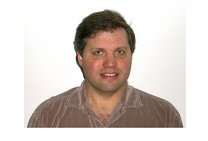Oral history interview with Samuel M. Kunes
- 1999-Nov-15 – 1999-Nov-17
Samuel M. Kunes was born in Trenton, New Jersey, in 1957, the second of four siblings. His father was a public accountant for the state of New Jersey; his mother was a school teacher who later became a social worker. Kunes was mostly uninterested in school as a child and struggled to find direction after high school. His decision to drive across the country after high school graduation brought him to the town of Corvallis, Oregon, where he would begin to realize his academic potential. Kunes attended Oregon State University until eventually transferring to the University of Oregon where he earned his Bachelor of Science degree in 1981. During this time he discovered his own interest in the sciences and did research at Cold Spring Harbor Laboratory. Kunes then applied to graduate school programs and successfully matriculated into a PhD program at the Massachusetts Institute of Technology where he performed research in David Botstein's lab and Maurice S. Fox's lab. These graduate school years steered Kunes toward the study of genetics, in which field he earned his PhD in 1988. He was awarded a postdoctoral fellowship in Hermann Stellar's lab at the Massachusetts Institute of Technology, where he studied the nervous system development of Drosophila, using what was then the very advanced technology of confocal microscopy. In 1993 Kunes accepted an assistant professorship in the Department of Biochemistry and Molecular Biology at Harvard University and was promoted to associate professor in 1999. His current research at Harvard focuses on tracing the intricate steps and control of axonal development in fruit flies. Throughout his oral history Kunes points out his aesthetic approach to science and the importance of remaining interested in the craftsmanship of scientific discovery. He has won several awards, including the Damon Runyon-Walter Winchell Foundation Scholarship and a Pew Scholars Program in the Biomedical Sciences Grant.
Access this interview
By request 1 PDF Transcript File and 8 Audio Recording Files
Fill out a brief form to receive immediate access to these files.
If you have any questions about transcripts, recordings, or usage permissions, contact the Center for Oral History at oralhistory@sciencehistory.org.









